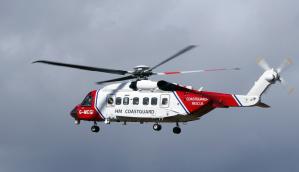DIVING NEWS
For more than 50 years, divers have benefited from the findings of the British Sub-Aqua Club’s annual Incident Report, which highlights trends in diver safety and provides educational case histories of incidents.
This year, however, the report is in transition as BSAC makes the shift to analysing its data by calendar year – starting with a full report on UK incidents in 2018.
The training agency, which is scuba diving’s governing body in the UK, says that the change is enabling it to analyse the data more thoroughly. The report previously had to comply with the requirement that it be available for BSAC’s annual Diving Conference in late October.
The original 2018 report was reported on Divernet last December. The adjusted report includes for the first time data on incident location and emergency rescue service involvement. In the 2018 calendar year BSAC recorded 242 incidents, many of which are described in the new report.
The report is positive about the continued reduction in incidents involving fast ascents and decompression illness, as well as in topside problems, such as with boats. The effectiveness of rescue techniques such as controlled buoyant lifts and use of alternative air sources is pinpointed as a factor in reducing instances of DCI.
Seventeen diving fatalities occurred in the UK in 2018, above the 13.2 average for the previous 10 years.
Key factors in these deaths included the fact that the divers had an average age of 56, with three being in their 70s. “This continues the previously identified trend of the fatalities occurring in an ageing population of divers,” notes BSAC.
Fourteen cases involved the casualty falling unconscious under or in the water, making rescue more problematic. Three divers were confirmed and five more suspected of having significant pre-existing medical conditions. There were also indications that immersion pulmonary oedema (IPO, or “drowning from the inside”) could have been a contributory factor in up to seven of the fatalities.
In five of the fatal incidents the divers started out solo, and in another four became separated. Four cases involved divers in groups of three or more, and subsequent separation of the casualty occurred in two incidents.
As it usually does, BSAC emphasises that most of the incidents reported could have been avoided had the divers involved followed basic safe-diving principles.
Data for the report is assembled through BSAC incident report forms supplemented by input from the Maritime & Coastguard Agency, RNLI, Ministry of Defence, PADI EMEA and the Royal Society for the Prevention of Accidents.

